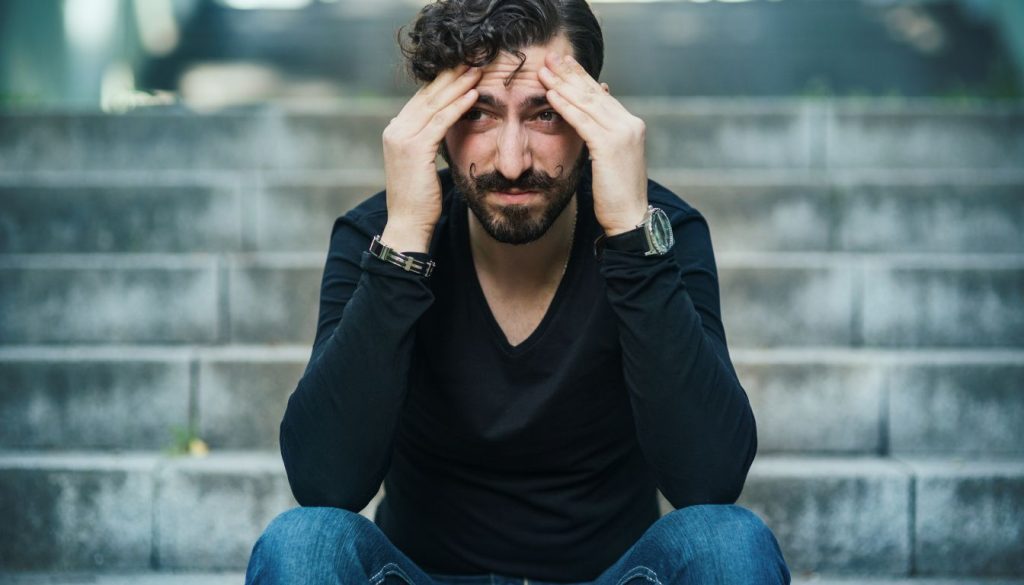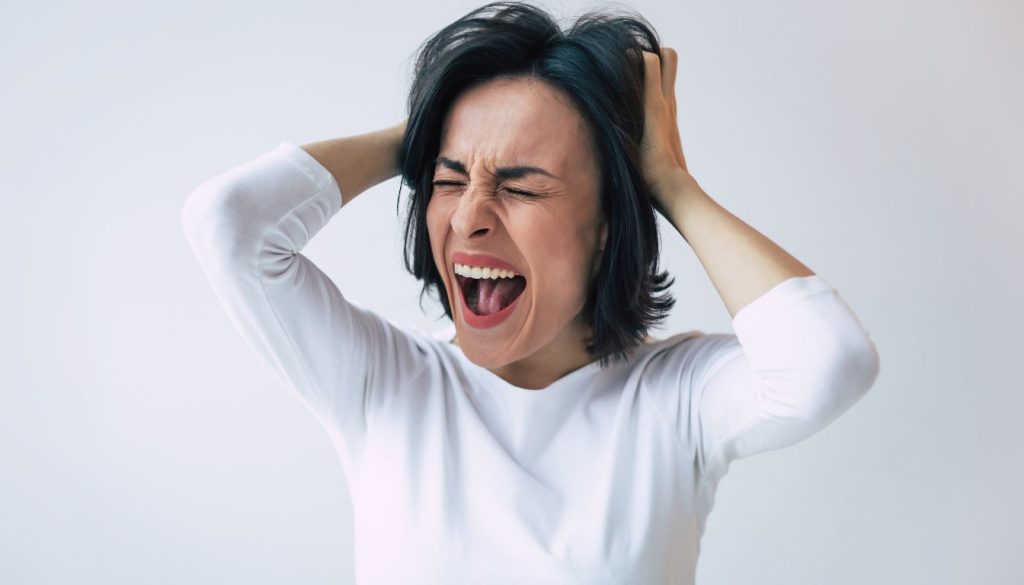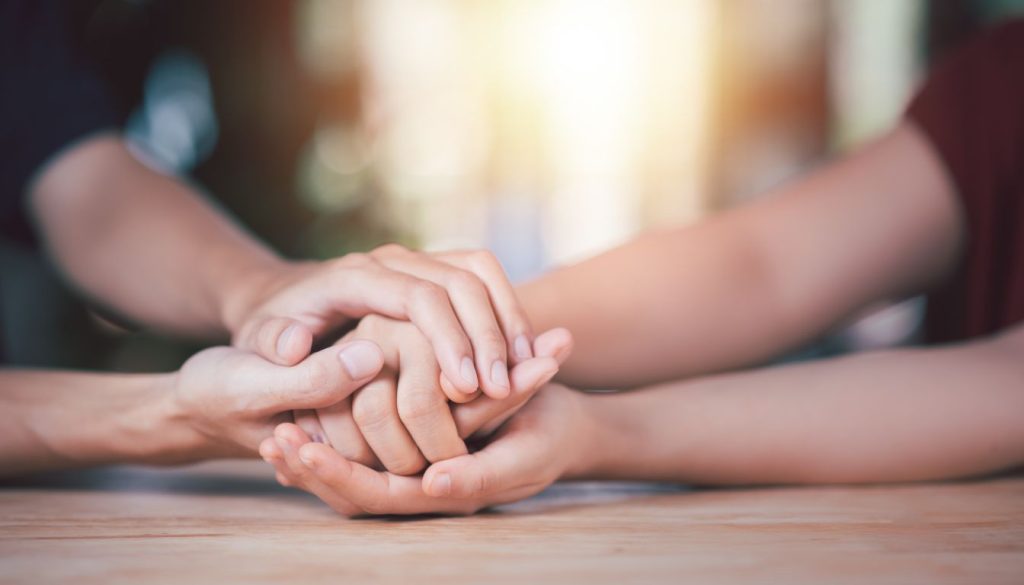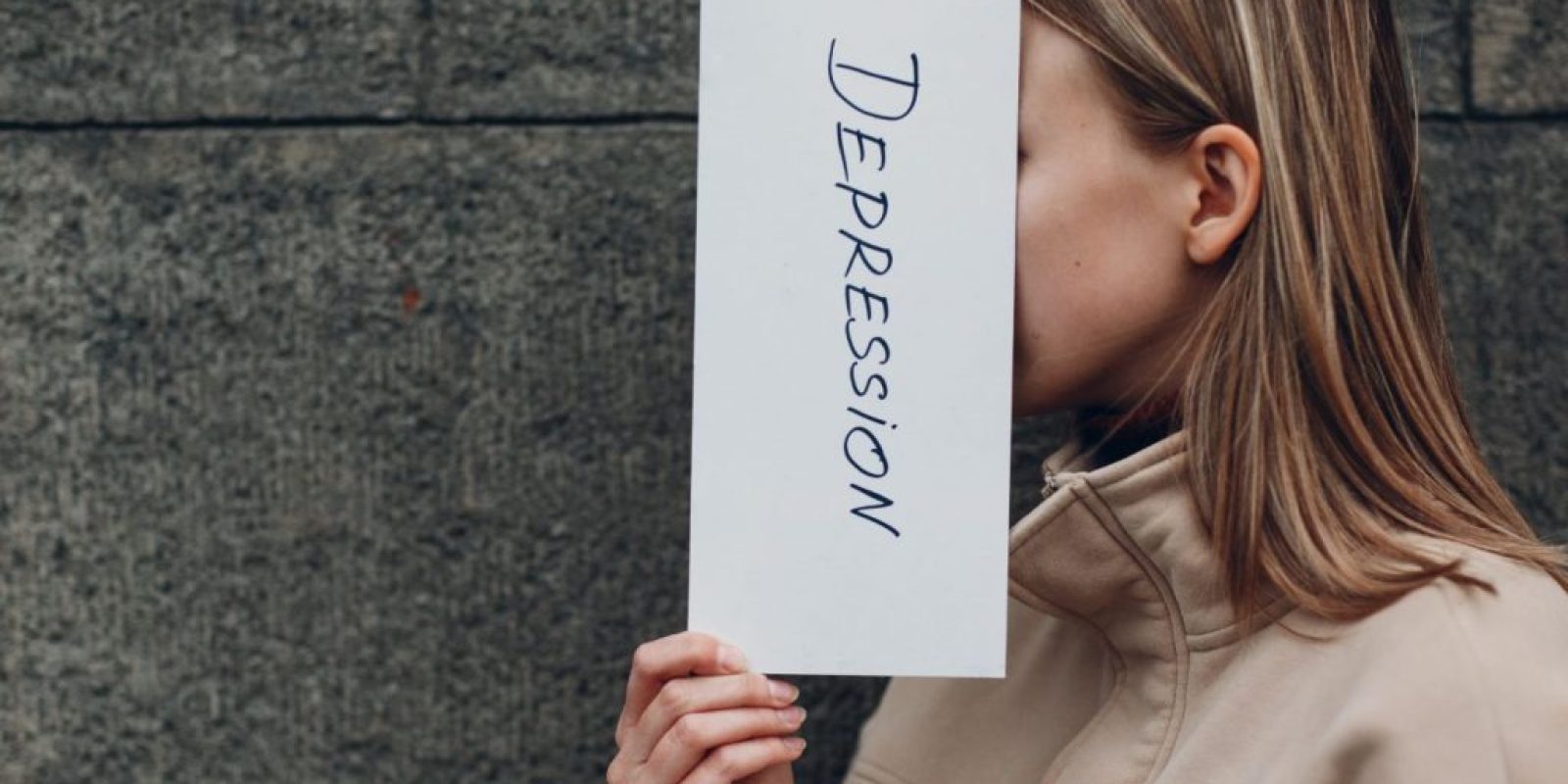About one in every six people may face a major depressive episode in their life.1 This number shows how common and serious depression is. It affects millions of Americans every year. 1 These signs of depression are a real issue, but they can be treated.
Knowing its signs helps to get timely support and deal with this challenge.
Key Takeaways
- Depression is a common, serious, and treatable mental health condition that affects approximately one in six people.1
- Causes of depression can include genetic predisposition, imbalances in brain chemicals like serotonin, stressful life events, and negative thought patterns.2
- Emotional symptoms of depression can include persistent sadness, feelings of hopelessness, and low self-esteem.
- Physical symptoms can include fatigue, sleep disturbances, and changes in appetite and weight.
- Cognitive symptoms may include difficulty concentrating and negative or suicidal thoughts.
What Causes Depression?
Depression is a complex mental health disorder with multiple causes. The condition shows up in different ways, affecting your brain chemistry, like how you feel, think, and act.3
Depression makes you feel sad, lost, and uninterested in things you love.1 It’s serious but treatable.
Anyone can get it, no matter their age or background.1
Causes of depression can include:
- Genetic predisposition
- Imbalances in brain chemicals like serotonin
- Stressful life events
- Negative thought patterns
Major depressive disorder, bipolar disorder, manic depression, and other depressive disorders can have various triggers and risk factors.
Types of Depression
There are many types of depression symptoms.
For instance, there are perinatal depression, peripartum depression, postpartum depression, premenstrual dysphoric disorder, disruptive mood dysregulation disorder, mood disorder, anxiety disorders, manic depression, substance use disorders, and bipolar disorder (mood swings).4
Each type has its own signs, causes, and treatment methods.
Some are major depression, while some are less intense.3
Others can come with different and severe symptoms or happen at certain times of the year.3
Depression affects everything about you, not just your mood. But it can be treated.3
Getting professional care is a key step towards feeling better.1
Signs of Depression and How to Cope
Emotional Symptoms of Depression
The emotional symptoms of depression can make you feel really sad or easily annoyed.
Emotional symptoms of depression can include:
- Persistent sadness
- Feelings of hopelessness
- Low self-esteem
- lost of pleasure
These feelings can make engaging in daily activities and maintaining personal relationships hard.
About 17.3 million adults in America get hit by depression each year, which is about 7.1% of the U.S.3
More women suffer from this than men, with women being 1.7 times more likely to feel this way.3
1. Persistent Sadness or Irritability
Sign
Feeling sad, empty, or hopeless most of the day, nearly every day, for at least two weeks can be a strong sign of depression.
People with depression often lose interest in things they used to love.
They might feel like crying a lot, or they’re always anxious.1
This can be a sign of major depressive disorder or other depressive disorders.
Coping Strategy
Engage in activities you once enjoyed, even if you don’t feel like it.
Behavioral activation, which involves scheduling and participating in positive activities, can help improve your mood.
For example, take up a hobby or spend time with friends to lift your spirits.
Additional Tips
- Break larger tasks into smaller, manageable goals. This can help make activities feel less overwhelming.
- Establish a daily routine to provide structure and help you stay active.
- Talk to friends or family members about how you feel to get emotional support and reduce feelings of isolation.
2. Feelings of Hopelessness and Helplessness
Depressed individuals may see no way out of their troubles.
They believe life will never get better and that nothing they do helps.1
This feeling of hopelessness can make them feel like they’ve lost all control.
They believe they’ll be stuck in the same bad spot forever.3
3. Low Self-Esteem and Guilt
Depression can really hit a person’s self-esteem hard.
They might feel really small, not good enough, or like they always fail.1
Also, they might blame themselves for feeling depressed or think they are at fault for their problems.3
4. Loss of Interest or Pleasure
Sign
Losing interest or pleasure in activities you once enjoyed, including hobbies, social activities, and sex, is another sign of depression.
This can indicate clinical depression or major depressive disorder.
Coping Strategy
Gradually reintroduce enjoyable activities into your routine.
Start with small tasks and build up to more significant activities as you feel more comfortable.
This might involve starting with a short walk and progressing to more engaging activities, like joining a club or class.
Additional Tips
- Experiment with new hobbies or interests to find activities that bring you joy.
- Engage in social activities, even if it’s just meeting a friend for coffee. Social interaction can improve your mood.
- Acknowledge and celebrate small achievements to help build momentum and motivation.

Physical Symptoms of Depression
Depression doesn’t only show up emotionally and mentally. It can affect our bodies, too.1
Changes in how our brain works, like with serotonin, are key.
These changes can mess with our body functions and cause depression more deeply.1
Lifestyle changes, such as better sleep and more exercise, are important.
These can help handle the signs and symptoms of depression.
Physical symptoms of depression can include:
- Fatigue and low energy
- Sleep disturbances
- Changes in appetite and weight.
You might also experience physical aches and chronic pain, worsening your overall health or medical condition.
1. Fatigue and Low Energy
Sign
Feeling tired or having little energy, even after a full night’s sleep, is another sign of depression.
This fatigue can be a symptom of major depressive disorder or other depressive disorders.
Coping Strategy
Add regular physical activity to your daily routine.
Exercise can help you feel more energetic and improve your overall mood.
Start with light activities like walking and gradually increase the intensity.
Physical activity releases endorphins, which can help lift your spirits.
Additional Tips
- Add physical activity to your daily routine, even if it’s just a short walk.
- Find a balance between rest and activity to avoid feeling overwhelmed.
- Pay attention to your body’s signals and rest when needed, but stay as active as possible.
2. Sleep Disturbances
Sign
A depressed mood can make it hard to sleep or sleep too much.
Sleep problems are common in depression. This can include:
- Difficulty falling asleep
- Waking up too early
- Sleeping too much
These sleep problems can make depressive symptoms worse and can significantly impact your mental health.
Coping Strategy
Set a regular sleep schedule by going to bed and waking up at the same time every day. Avoid caffeine and electronics before bedtime, and create a relaxing pre-sleep routine. Techniques like reading a book, taking a warm bath, or practicing mindfulness can help you sleep better.
Additional Tips
Ensure your bedroom is dark, quiet, and cool to promote better sleep.
Avoid taking long naps during the day, as they can interfere with nighttime sleep.
Deep breathing, meditation, or progressive muscle relaxation can help you unwind before bed.
3. Changes in Appetite and Weight
Sign
Depression can lead to significant changes in appetite and weight.
You may eat much more than usual or lose your appetite altogether.
These changes can result in either weight gain or weight loss, which are common physical symptoms of depression.
Coping Strategy
Maintain a balanced diet and a regular meal schedule.
If you struggle with appetite, consider consulting a nutritionist or dietitian for personalized advice. Regular, nutritious meals can help stabilize your mood and energy levels.
Additional Tips
- Plan your meals in advance to ensure you eat healthy diet and nutritious foods.
- Eat smaller, more frequent meals to help maintain your energy levels throughout the day.
- Drink plenty of water to stay hydrated, as dehydration can affect mood and energy.

Cognitive Symptoms of Depression
Depression can hurt more than how you feel or act.
It can mess with how sharp you are, too. Cognitive symptoms may include:
- Difficulty concentrating
- Negative thoughts
- Suicide attempts
- Trouble making decisions
These symptoms can affect your ability to perform at work or school and manage daily tasks.
A study showed that out of 448 students who experienced depression, they had trouble with things like remembering, controlling their actions, planning, and being flexible.5
Another study with over 1,000 college students found that feeling down made it hard to keep goals straight.5
1. Difficulty Concentrating
Sign
Depression can affect cognitive functions, leading to trouble concentrating, remembering details, or making decisions.
This can impact your performance at work or school and interfere with daily tasks. If you’re battling this, know you’re not alone.6
Coping Strategy
Break tasks into smaller steps and take regular breaks. Use tools like planners or apps to help organize your tasks and set reminders.
This can help you stay on track and reduce feelings of being overwhelmed.
Additional Tips
- Write down tasks and prioritize them to stay organized and focused.
- Break up tasks with short breaks to avoid mental fatigue.
- Utilize apps or tools to set reminders and keep track of your tasks.
2. Negative or Suicidal Thoughts
Feeling like life’s not worth living is a very serious part of depression.
These thoughts can be scary and overwhelming.
If you’re having them, or if a loved one is, get help fast from a therapist or call an emergency number.7
Sign
One of the most severe signs of depression is having thoughts of death, suicidal thoughts, or attempts.
These thoughts are not just occasional but persistent and distressing.
This is a major risk factor for suicide and should be taken seriously.
Coping Strategy
Seek immediate help from a mental health professional if you experience these thoughts.
Reach out to friends, family, or support groups for emotional support.
Crisis hotlines and emergency services are also available for immediate assistance.
Take these thoughts seriously and get help as soon as possible.
Additional Tips
- Work with a mental health professional to create a safety plan for moments of crisis.
- Remove or secure items that could be used for self-harm.
- Maintain regular contact with supportive friends or family members.
Behavioral Symptoms of Depression
Depression shows up in how we act, not just how we feel. It affects our behavior, too.
Finding no joy in what you once loved is a common sign. This might be hobbies, hanging out with friends, or chores.
A person might lose interest or find these things less fun.
They might stop seeing friends and family, skip plans, and avoid parties.
Feeling more alone, they pull away even more, trapped in a lonely cycle.
These changes can really hurt someone’s life and health.8
It’s key to notice and deal with signs of depression, including these actions.
Doing so helps find the right help for recovery.
Problems with brain chemicals and negative thoughts can make depression worse.1
Also, unhealthy ways of dealing with stress and anxiety, like avoiding problems and using drugs, can make you more likely to get depressed.1
If you have felt this way for a long time, talk to a mental health expert.9
Getting the right help can make a big difference. Effective treatments exist, and with the proper support, you can get better.
When to See a Doctor

Feeling sad often, not enjoying things, or changing eating or sleeping habits?
If you recognize any of these signs in yourself or someone you care about, and if these feelings last for 2 weeks or more, you should talk to someone.3
The earlier you seek help, the better your chances of getting well.10
Seeking help from a mental health professional, such as a psychologist or psychiatrist, can provide you with the tools and support needed to manage depression.
Therapy, counseling, and other treatments can be tailored to your specific needs.
For example, it might be a major depressive disorder or other mental disorder. Then, together, you’ll make a plan to treat it.
This could include talk therapy, pills, or both.
Around 17.3 million adults in the U.S. face depression.3 It might be hard at first to admit you need help.
But it’s a big step toward feeling better. Early intervention can significantly improve the management of symptoms and the quality of life.
The Mental Health Services Administration can guide you in finding the right professional help.
Managing and Treating Depression
1. Cognitive Behavioral Therapy (CBT)
CBT is an effective treatment for depression that focuses on changing negative thought patterns and behaviors.
It involves working with a therapist to identify and challenge unhelpful thoughts and develop healthier ways of thinking.
2. Medication
Antidepressants can help balance chemicals in the brain that affect mood and emotions.
Talk with a healthcare provider to determine if treatment with medication is right for you and to discuss potential side effects. Antidepressant medications like SSRIs and SNRIs are commonly used to treat depression.
3. Mindfulness and Relaxation Techniques
Practicing mindfulness, meditation, and relaxation techniques can help reduce stress and improve your mood.
These practices encourage you to stay present and manage negative thoughts more effectively.
Techniques like deep breathing and progressive muscle relaxation can be helpful.
4. Electroconvulsive Therapy (ECT)
For severe cases of depression that do not respond to other treatments, electroconvulsive therapy (ECT) may be considered.
ECT involves electrical brain stimulation under anesthesia and can be effective for some individuals.
5. Vagus Nerve Stimulation (VNS)
Vagus nerve stimulation (VNS) is another treatment option for treatment-resistant depression.
VNS involves using a device implanted in the body that sends electrical impulses to the vagus nerve, which can help improve mood.
Addressing Co-Occurring Disorders
Depression often co-occurs with other mental disorders, such as anxiety disorders, eating disorders, and substance use disorders.
Addressing these co-occurring disorders is crucial for comprehensive treatment.
This might involve integrated therapy that targets both depression and the co-occurring condition.
Managing Chronic Pain
Chronic pain can worsen depression symptoms.
Managing chronic pain through medical treatments, physical therapy, or pain management programs can help reduce the impact of pain on your health.
Conclusion
Recognizing the signs of depression is the first step to managing it effectively.
By following coping strategies and seeking the necessary support, you can go through depression and improve your quality of life.
Remember, you’re not alone, and help is always available.
FAQ
What is depression?
Depression is a serious mental health issue. It affects about one in six people. It makes them feel very sad, not interested in things, and hopeless.
What are the causes of depression?
Many things can cause depression. These might be from your genes, brain chemicals, or stressful events. Not having enough social support can also play a part.
What are the different types of depression?
Depression comes in several forms. It includes major depressive disorder and SAD. There’s also postpartum depression that some new mothers might experience.
What are the emotional symptoms of depression?
Feeling very sad or angry all the time is a sign. So is feeling like there’s no hope or help. People with depression may feel guilty or worthless.
What are the physical symptoms of depression?
Depression can show up in the body, too. You might always feel tired or have trouble sleeping. Some people eat too much or too little because of it.
What are the cognitive symptoms of depression?
Thinking clearly can be hard with depression. You might find it tough to focus, remember things, or make decisions. Negative or suicidal thoughts can also creep in.
What are the behavioral symptoms of depression?
Not wanting to do things you usually enjoy can be a sign. So can pulling away from friends and family.
What are some key signs that may indicate depression?
Feeling very sad and losing interest in life are big flags. If your sleep or eating habits change, it could be depression. Trouble concentrating or harmful thoughts are also key signs.
When should you see a doctor for depression?
If depression is making it hard for you to live normally, see a doctor. A mental health expert can check and suggest ways to help you feel better.
How is depression diagnosed?
A doctor will talk to you and do some tests. They’ll also look at your medical history and do an exam. This helps them figure out if you have depression.
Source Links
- https://www.mayoclinic.org/diseases-conditions/depression/symptoms-causes/syc-20356007
- https://www.geisinger.org/health-and-wellness/wellness-articles/2018/09/06/16/47/are-you-depressed-seven-signs-you-shouldnt-ignore
- https://www.nimh.nih.gov/health/topics/depression
- https://www.webmd.com/depression/ss/slideshow-physical-symptoms-depression
- https://psychcentral.com/depression/the-cognitive-symptoms-of-depression
- https://www.ncbi.nlm.nih.gov/pmc/articles/PMC3852369/
- https://www.ncbi.nlm.nih.gov/pmc/articles/PMC4304584/
- https://www.nhs.uk/mental-health/conditions/depression-in-adults/symptoms/
- https://www.camh.ca/en/professionals/treating-conditions-and-disorders/depression/depression—resources-and-references
- https://highlandspringsclinic.org/when-and-how-to-seek-professional-help-for-depression/
- https://www.forbes.com/health/mind/professional-mental-help/



